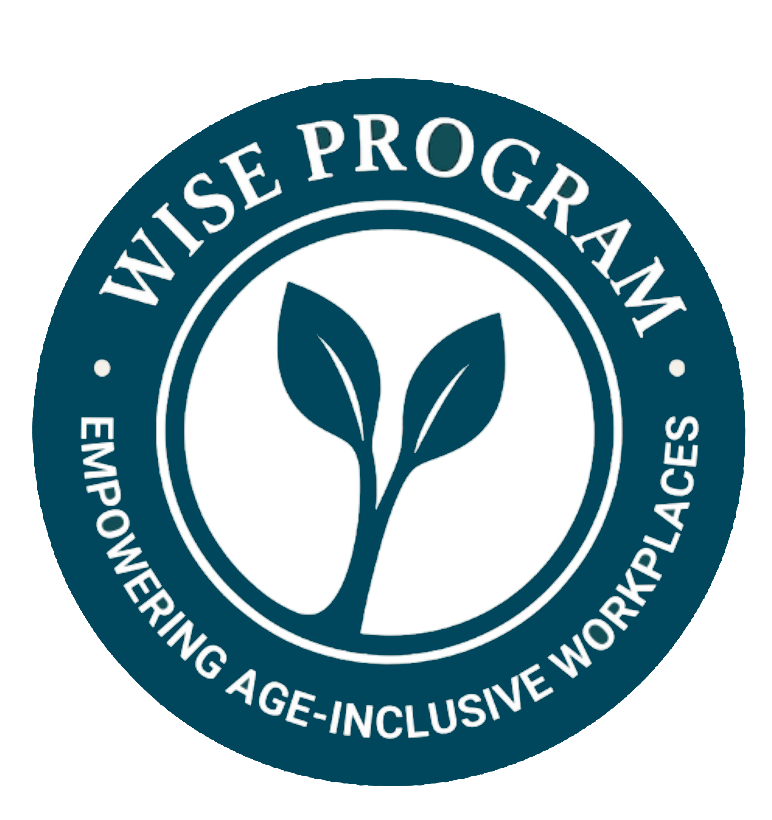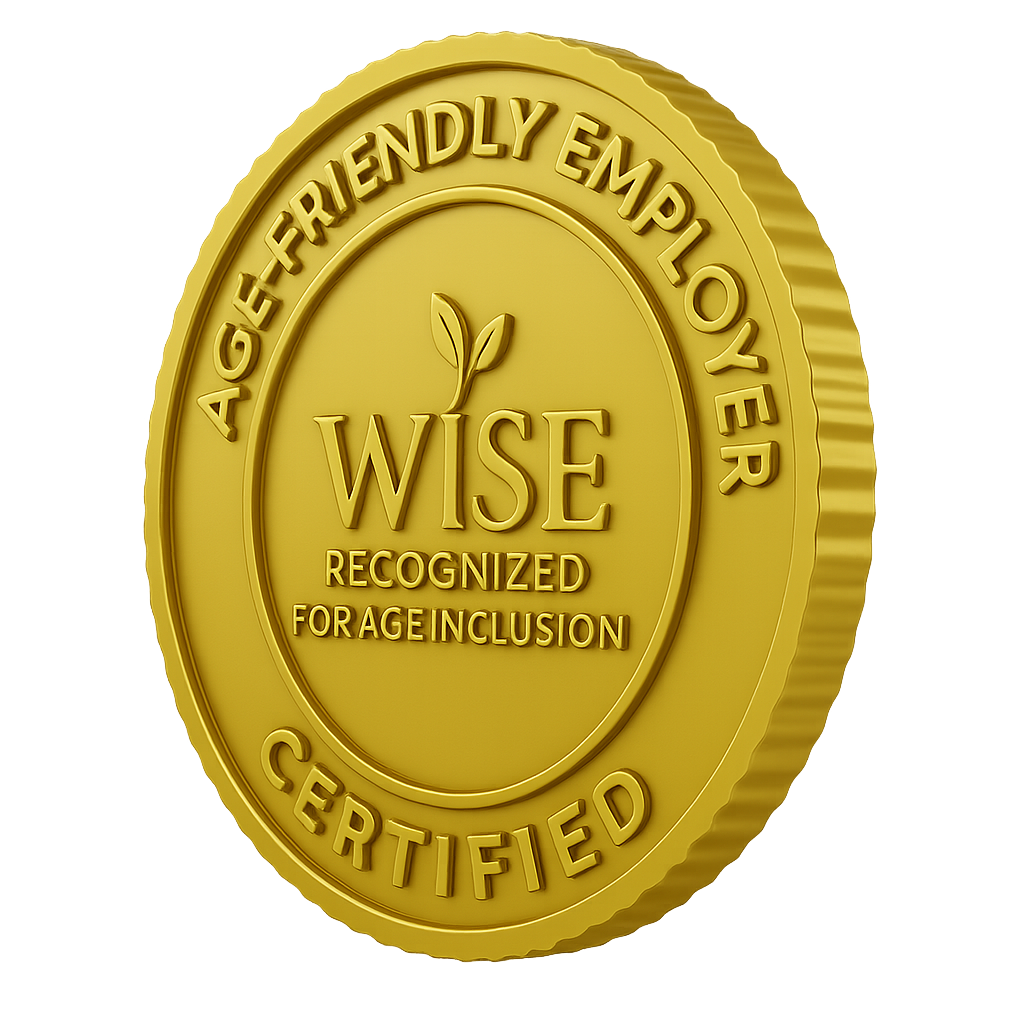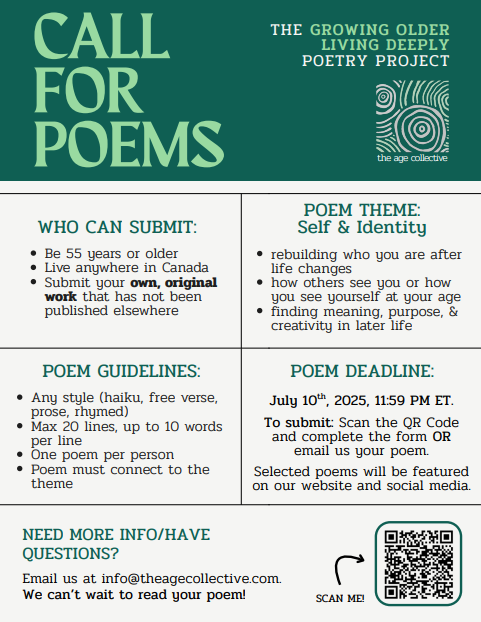Blog
- Details

NEWS RELEASE
For immediate release
November 12, 2025
ELDER JUSTICE COALITION
Legislative Advocacy Day:
Coercive Control of Seniors
OTTAWA, ONTARIO - The Elder Justice Coalition is an ad hoc group of organizations calling for a coercive control offence to protect elder abuse victims. Our aim is to bring our voices together during a Legislative Action Day on Parliament Hill, where we plan to engage with politicians and their staff, urging them to extend a coercive control offence beyond intimate partners to include abusive adult children and others in positions of trust and dependence.
Elder abuse victims were excluded from the last attempt to criminalize coercive control (Bill C-332), which received unanimous, all-party support in the House of Commons. This advocacy effort aims to unite voices and ensure older victims are no longer overlooked. “Coercive control can profoundly devastate older people’s lives,” said Laura Tamblyn Watts, CEO of CanAge, Canada’s national seniors’ advocacy organization, and a global expert on ageing and law reform. “A coercive control offence that includes abuse within relationships of trust and dependence would recognize the reality of their experience and help close a critical gap in protection.”
Coercive control can trap older people, particularly older women, in relationships where they lack access to money, housing, care, or independence. Those with cognitive impairments such as dementia may be particularly unable to seek help. “When an older person is controlled or manipulated by a person they depend on, the harm often goes unnoticed,” said Bénédicte Schoepflin, executive director of the Canadian Network for the Prevention of Elder Abuse. “Recognizing coercive control in these relationships would give these victims the legal protection they deserve.”
“Elder Abuse Prevention Ontario (EAPO) recognizes the urgent need to recognize and address coercive control as a critical form of elder abuse—particularly among older adults living with cognitive impairments, because it involves patterns of manipulation and isolation that diminishes an individual’s autonomy, independence and dignity, often under the guise of protection or care,” said Marta Hajek, CEO of EAPO.
Parliament is expected to revisit coercive control legislation, with the NDP indicating that MP Leah Gazan (Winnipeg Centre) is working to strengthen the earlier proposal. “This is an encouraging sign,” said Heather Campbell Pope, a lawyer and sole director of Dementia Justice Canada, a small nonprofit dedicated to enhancing access to justice for people with dementia. “Lawmakers have already shown they recognize the harm caused by coercive control. This time, we’re urging them to ensure older victims, especially those harmed by adult children and others in positions of trust, are not left behind.”
Other jurisdictions are already leading the way. In Queensland, Australia, the coercive control offence covers a broader range of relationships beyond intimate partners. At Simon Fraser University, elder law expert Professor Margaret Hall is conducting international comparative research on how jurisdictions worldwide have criminalized coercive control outside the intimate partner context. Her research will help inform the Elder Justice Coalition’s advocacy and strengthen the case for legislative action in Canada.
A GoFundMe has been launched to support this legislative advocacy initiative, tentatively scheduled for early February 2026. The goal is $25,000 to help send elder justice representatives to Ottawa, fund legal research and advocacy materials, and support participation by other organizations.
“Elder justice advocacy has long been underfunded,” said Campbell Pope of Dementia Justice. “This fundraiser will help advocates come together in Ottawa and draw attention to elder abuse victims who too often go unheard.”
The Legislative Action Day is a crucial opportunity to push for criminal law reform that recognizes coercive control in all relationships of trust and dependency, ensuring older victims are safeguarded and abusers are held accountable.
PARTICIPATING ORGANIZATIONS
Advocacy Centre for the Elderly (ACE) is the first and oldest legal clinic in Canada with a specific mandate to provide a range of legal services to low-income older adults. Its legal services include individual and group client advice and representation, public legal education, community development and law reform activities.
BC Association of Community Response Networks (BC CRN) is a provincial non-profit dedicated to fostering safe, inclusive communities where vulnerable adults are valued and protected. Through active coordination, advocacy, education, collaboration, and relationship building, it supports local community response networks to create awareness and prevention of adult abuse, neglect, and self-neglect.
Brainwell Institute is an independent think tank that elevates evidence to ignite change and revolutionize thinking about dementia and brain health.
CanAge is Canada’s national seniors’ advocacy organization, working to improve the lives of older adults through advocacy, policy, and community engagement.
Canadian Network for the Prevention of Elder Abuse (CNPEA) builds awareness, support and capacity for a coordinated pan-Canadian approach to the prevention of elder abuse and neglect. It promotes the rights of older adults through knowledge mobilization, collaboration, policy reform and education.
Dementia Justice Canada is a small non-profit dedicated to advocating for the rights and dignity of people with dementia. A particular focus is criminal justice reform.
Elder Abuse Prevention Ontario (EAPO) is a charitable, non-profit organization, recognized for its leadership in elder abuse prevention, providing awareness raising educational forums, training multi-sectoral front-line service professionals, and creating tools/resources for all to better understand and appropriately respond when supporting older adults at-risk or experiencing increasingly complex issues of elder abuse.
National Institute on Ageing (NIA) improves the lives of older adults and the systems that support them by convening stakeholders, conducting research, advancing policy solutions and practice innovations, sharing information and shifting attitudes. Its vision is a Canada where older adults feel valued, included, supported and better prepared to age with confidence.
Prevent Elder Abuse Manitoba (PEAM) is a provincial network dedicated to raising awareness, fostering collaboration, and promoting strategies to prevent the abuse and neglect of older adults across Manitoba.
Additional organizations may be announced in due course.
LEGISLATIVE ACTION DAY
Tentative Date: Thursday, February 5, 2026
Ottawa, Ontario
This is a fixed sitting date for the House of Commons and Senate.
More information
For more information on a proposed coercive control offence and elder abuse, please visit Dementia Justice Canada’s webpage.
Contact
Laura Tamblyn Watts
CEO CanAge
Email:
Phone: 647-969-6793
Heather Campbell Pope
Founder/Director Dementia Justice Canada
Email:
Phone: 613-710-0366
- Details
Canada is in the middle of a workforce challenge. Job vacancies remain high. Skilled tradespeople are retiring. And many industries — from construction to healthcare — are struggling to keep up. As of June 2025, Canada’s unemployment rate sits at 6.9%, with 1.6 million people actively looking for work. Many employers are struggling to fill key positions, particularly in trades and care-based sectors.
Yet thousands of older, skilled, and experienced adults who want or need to keep working are being quietly pushed aside. While elder abuse is often discussed in the context of home or care settings, workplaces play a vital role in shaping attitudes toward aging. When older adults are excluded from meaningful work, it not only impacts their income and independence, it can also reinforce ageist stereotypes that contribute to social isolation, a known risk factor for abuse.
At the same time, nearly one in four Canadians will be over the age of 65 by 2030. This growing demographic shift is a call to action, urging us to reimagine how we value, engage, and protect older adults in every sphere of society, including the workplace.
From Overlooked to Essential with WISE
This is where W.I.S.E. (Wisdom, Inclusivity, Synergy, and Equity) steps in. Developed through On Your Own Time, W.I.S.E. is a free workplace certification program designed to help employers tap into the expertise of experienced workers.
W.I.S.E. works by guiding employers through a practical, supportive audit of their hiring language, benefits, training opportunities, and workplace culture. The process identifies gaps and opportunities, then provides tailored recommendations and inclusive hiring tools that make it easier to create environments where experience is valued as an asset, not a liability.
Organizations that meet W.I.S.E.’s standards earn a public certification badge, a clear signal toolder job seekers that they are welcome, wanted, and valued.
For employers, the benefits are substantial. Age inclusion opens access to a broader talent pool and delivers employee retention rates 5.4 times higher than non-inclusive companies. It preserves valuable institutional knowledge while fostering stronger, more engaged teams, and these organizations are three times more likely to be high-performing. By embracing age inclusion, employers can strengthen their competitive edge, close persistent labour gaps, and build a workplace culture that attracts and retains top talent.
Whether you’re an employer, policy maker, or experienced worker, your role matters. By championing age inclusion today, we’re not only filling critical gaps in the labor market, we’re building workplaces that are wiser, stronger, and more resilient for the future.
Because when every generation has a seat at the table, everyone benefits. Learn more or get certified at: www.onyourowntime.ca/w-i-s-e.
References
- Statistics Canada, “Labour Force Survey, June 2025,” July 11, 2025.
- Government of Canada, Employment and Social Development Canada, “Government ofCanada invests to help Canadians enter skilled trades,” July 27, 2022.
- Bush, M. (2023, August 25). Why Is Diversity and Inclusion in the Workplace Important? Great Place To Work. August 15, 2025, https://www.greatplacetowork.com/resources/blog/why-is-diversity-inclusion-in-the-workplace-important
- Statistics Canada, “The older people are all right,” September 23, 2024.https://diversio.com/dei-employee-retention/
- Details
Across Canada, many older adults who want or need to keep working are being overlooked, not because they lack ability but because of ageism. Ageism shapes how society views and values older people, and over time, negative stereotypes and exclusionary practices can lead to isolation, loss of independence, and vulnerability, increasing the risk of elder abuse. By addressing ageism early, especially in workplaces, we can help prevent these harms and ensure older adults remain respected, engaged, and valued.
After stepping away from her full-time role, Carolynne Mahood, a seasoned HR leader with decades of experience, wasn’t ready to stop contributing.
“I wasn’t done. I still wanted to learn and work in some capacity — just not the 9-to-5 grind,” she recalls.
In conversations with friends and former colleagues, she kept hearing the same story: experienced professionals were struggling to find meaningful, flexible opportunities. To help, Carolynne created On Your Own Time, a job-matching service for experienced workers. But she soon realized the issue ran deeper — it wasn’t just about matching people with jobs, it was about tackling systemic ageism. She recognized that real progress required changing the system that allowed ageism to persist.
Turning frustration into a framework
That realization led Carolynne to launch W.I.S.E. (Wisdom, Inclusivity, Synergy, and Equity) — Canada’s first workplace certification program focused on age inclusion. Developed through On Your Own Time, W.I.S.E. was built to be both impactful and accessible.
Rather than offering an overly complex certification that can discourage participation, or a pledge that doesn’t lead to action, W.I.S.E. provides a simple, practical, and encouraging process that organizations of all sizes can join. It’s supportive, free, and designed to help employers take tangible steps toward inclusion while meeting them where they are.
How W.I.S.E. Works
W.I.S.E. is not just about improving optics — it’s about creating meaningful, lasting change. The program guides employers through a supportive review of their hiring language, benefits, training opportunities, and workplace culture.
 Employers who complete the W.I.S.E. process receive:
Employers who complete the W.I.S.E. process receive:
- Tailored recommendations to close gaps, along with expert consulting to guide implementation
- Inclusive hiring resources to attract and retain experienced talent
- A public certification badge signalling to older job seekers: you are welcome here
With three certification tiers, organizations can start at their current level and work toward higher recognition with ongoing support from the W.I.S.E. team.
Leading the Way
The urgency is clear: 700,000 skilled tradespeople are expected to retire by 2028. Without action, this loss of institutional knowledge and technical skill will leave critical gaps in the labour market.
One company already making progress is Voltech Fire Protection Services, a BC-based business specializing in fire prevention and safety systems. In a male-dominated, aging industry, Voltech recognized the need to keep experienced workers engaged. They partnered with W.I.S.E. to review their hiring practices, adjust benefit flexibility, and strengthen their workplace culture.
Currently, W.I.S.E. is collaborating with Voltech to help them advance from Silver to Gold certification, ensuring they continue to lead in age inclusion and set an example for others in their sector.
“Participating in the W.I.S.E. Certification process was a valuable experience for Voltech. It gave us the opportunity to reflect on our current practices and highlight the ways we already support inclusivity across different ages and experiences in our workplace. We are proud to have achieved the certification, and this recognition reinforces our ongoing commitment to building a supportive and inclusive culture. The feedback and recommendations provided will help guide us as we continue to grow and strive for higher levels of certification in the future.”
— Ashleigh Stokes, Operations Manager at Voltech Fire Protection
By helping employers rethink how they hire, train, and retain talent, W.I.S.E. is tackling ageism head-on, and proving that when every generation has a seat at the table, everyone benefits.
- Learn more or get certified: www.onyourowntime.ca/w-i-s-e
- Follow and support us on LinkedIn: https://www.linkedin.com/company/on-your-own-time
- Details
NOTICE
CNPEA Annual General Meeting
Tuesday, September 23, 2025
10 AM to 11:30 AM (Pacific Time)/
1 PM to 2:30 PM (Eastern time)
All members of the Canadian Network for the Prevention of Elder Abuse are invited to join us and entitled to vote
during our Annual General Meeting.
REGISTER HERE
Please join us on September 23, 2025 to
- Set the board size and elect a new slate of Board members;
- Adopt the Special Resolution of members (requiring approval by at least two-thirds of voting members) to confirm the adoption of the updated general By-laws of the Network, approved by the board of directors in June 2025, to better reflects the operation and growth of the Network.
- Resolve to permit the Board to set the annual number in the future (number of directors within the minimum of 3 and maximum of 20)
- Hear about our successes and activities of the past year and future perspectives.
The meeting will be held online via Zoom. Registration is required to participate.
The 2025 annual report, financial statements, and the list of candidates for the Board will be circulatedto CNPEA members by email in September.
FREQUENTLY ASKED QUESTIONS:
How will I join the meeting?
Once you have registered, you will receive an automated email containing the Zoom link that will allow you to join the virtual meeting on September 23.
How do I know if I'm a member?
If you receive our monthly newsletters and have received thisAGM Notice by email directly from us, you are a member and are entitled to vote.
Why a special resolution?
Pursuant to a question from our corporate agents, we decided to ensure and clarify that CNPEA has fully complied with the Canada Not-for-Profit Corporations Act requirement that the By-laws were approved by a special resolution (two-thirds) vote of the membres.
- Details
The Age Collective (TAC) is a non-profit, community initiative dedicated to shifting how we think and talk about aging. Through creative storytelling and the arts, TAC aims to challenge ageist stereotypes, build intergenerational connections, and create space for older adults to feel seen, heard, and celebrated. 
Their newest project, the GOLD (Growing Older, Living Deeply) Poetry Project invites older adults aged 55+ from across Canada to share original poems that explore the rich, complex, and often overlooked realities of aging.
Every few months, the project launches a new theme exploring a different aspect of aging. The current theme is Self & Identity. TAC is looking for poems that explore how identity evolves in later life—through personal growth, life transitions, shifting roles, or how you’re seen by others.
Whether it’s your first time writing or your hundredth, your voice matters! Selected poems will be featured on the TAC website and social media to highlight the depth and power of poetry in capturing the realities of aging.
For more information and to submit a poem, click here.
Stay in touch with The Age Collective:
- Instagram: @theagecollective
- LinkedIn: The Age Collective
- Website: www.theagecollective.com
- Email:
Page 1 of 55

















